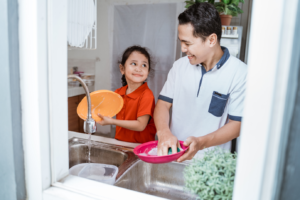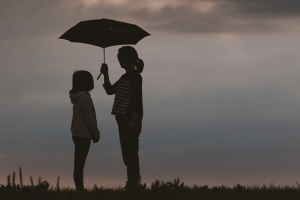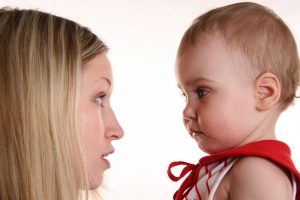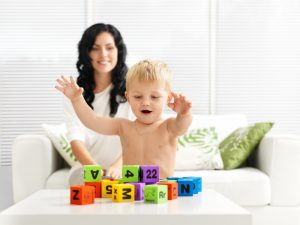Parenting to Grow Self-awareness and Self-management
 Parents teach children to notice and respond to hunger, cold, and a full bladder. We cheer as they connect the dots to master the skill of walking, climbing stairs, and riding a bicycle. However, achieving these milestones requires noticing and attending to information inside the body and the outside environment to act effectively. These actions don’t exist in a vacuum devoid of interactions and feedback from how things feel in their bodies. Instead, they are the product of an intricate process informed by many aspects of being.
Parents teach children to notice and respond to hunger, cold, and a full bladder. We cheer as they connect the dots to master the skill of walking, climbing stairs, and riding a bicycle. However, achieving these milestones requires noticing and attending to information inside the body and the outside environment to act effectively. These actions don’t exist in a vacuum devoid of interactions and feedback from how things feel in their bodies. Instead, they are the product of an intricate process informed by many aspects of being.
However, once the “basics” are in place, attention to these hidden variables fades as priorities shift. Children’s lives then become carefully curated by their devoted and committed parents with the ideal future they have in mind. Education, appearance, recreational activities, and friendships are part of the plan. We tell children to put on a coat because we are cold, go to an event because we think it would be fun, and sugarcoat what the child might find unpleasant. “Because I say so” and “I know best” are the classic representations of this stance. And while we often do know better, the child is not a blank slate.
This posture denies that children as feeling, sensing, and physical beings that have their own experiences of the moments in their lives. Unfortunately, learning about them becomes secondary to what others demand or expect, getting noticed when they become an obstacle to the parent’s grand plan. It is as if there is no time, space, or value to attend to the experience of being if it gets in the way of doing. The unintended message is you exist in service of meeting external expectations.
Of course, this is not the goal of parents. Unfortunately, parents have been subject to the same practices that push for an outcome, performance, productivity, and praise from others. External orientation drives high rates of depression, anxiety, dependence on distractions, substances, and the consumerism we see today. To do differently is to shift to a new set of priorities, questions, and parental responses that prioritize self-awareness. The key to this transition is attending to the internal guideposts when interacting with the outside world. Self-awareness provides the foundation for authenticity, connection, and self-management.
So how does a parent make this shift? Looking at behavior is like looking at the tip of an iceberg; it is the manifestation of what lies below the surface. Parents who struggle to consider the variables beneath behavior are limited in their ability to grow their child’s self-awareness. Curiosity about what is going on for a child changes everything. Interacting with peers, siblings, school, COVID restrictions, limits on technology use, and losing at games are all opportunities for self-discovery with the support of curious parents. This exploration brings essential information to light.
Discipline focused on helping a child discover what drives behavior is about building self-management for the long game. A punishment that uses coercion or fear to compel compliance with immediate demands is short-sighted. Instead, the goal should be to build the self-guidance essential to successfully managing the long game of life. Yes, limits and consequences are valuable teaching tools. Limits are required when the child is not yet ready to handle freedom responsibly. We don’t give car keys to a 10-year-old, because they don t have the skills, much less the height to see over the steering wheel to drive. Similarly, consequences are a valuable part of trial and error learning and essential to growing critical thinking.
Parenting oriented to building their child’s self-awareness fosters self-management. As the child’s self-management emerges, they more often behave appropriately in the context and become more responsible. They learn who to trust, how to care for their bodies, and demonstrate the capacity to navigate the challenges of launching successfully. In addition, parents who support this journey communicate to their children that they are loveable, good enough, and worthy every step along the way. With self-awareness as a priority, children receive the lifelong gift that curiosity is the response to vulnerability, building a solid foundation on which health, relationships, and future pursuits can rest.








